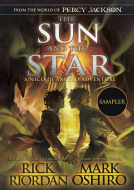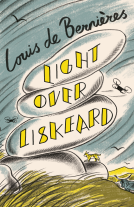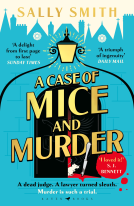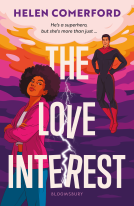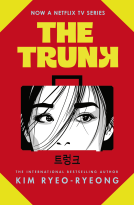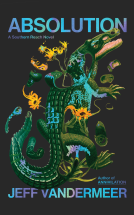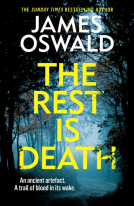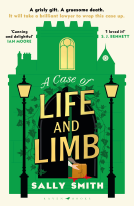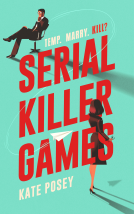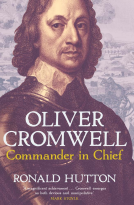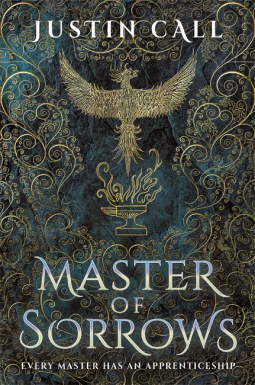
Master of Sorrows
The Silent Gods Book 1
by Justin Call
This title was previously available on NetGalley and is now archived.
Send NetGalley books directly to your Kindle or Kindle app
1
To read on a Kindle or Kindle app, please add kindle@netgalley.com as an approved email address to receive files in your Amazon account. Click here for step-by-step instructions.
2
Also find your Kindle email address within your Amazon account, and enter it here.
Pub Date 21 Feb 2019 | Archive Date 10 Jan 2022
Orion Publishing Group | Gollancz
Talking about this book? Use #MasterOfSorrows #NetGalley. More hashtag tips!
Description
The Academy of Chaenbalu has stood against magic for centuries.
Hidden from the world, acting from the shadows, it trains its students to detect and retrieve magic artifacts, which it jealously guards from the misuse of others. Because magic is dangerous: something that heals can also harm, and a power that aids one person may destroy another.
Of the Academy's many students, only the most skilled can become Avatars - warrior thieves, capable of infiltrating the most heavily guarded vaults - and only the most determined can be trusted to resist the lure of magic.
More than anything, Annev de Breth wants to become one of them.
Available Editions
| EDITION | Other Format |
| ISBN | 9781473222861 |
| PRICE | £14.99 (GBP) |
| PAGES | 592 |
Featured Reviews
 Petrik L, Reviewer
Petrik L, Reviewer
Reviewed by my co-blogger: Teik Sim. We have decided to use this review to represent Novel Notions's review on the book.
Master of Sorrows was a remarkable debut which I simply cannot put down.
This book recalled so much about what I loved about classic epic fantasy and yet felt modern. The author has quoted David Eddings as his earliest favourite. Having read and loved Eddings’ works myself, I can definitely see the influences from The Belgariad in this book; a prophecy, Gods and a coming-of-age tale of a young man destined for greatness. Except, in this case, that greatness may lie in the path of darkness instead of light.
As if those three elements above weren’t enough to make me love Master of Sorrows, we also have the school trope in this story. You know the drill. A talented main protagonist trying to advance, but was constantly thwarted by his equally talented enemies, or bullies. School bullies will never go out of fashion – in books, television, movies or the real world. As a reader or spectator, it is always so satisfying when the victim overcomes the abuse, and it is especially gratifying to see the antagonists receiving their comeuppance. I believe that this satisfaction stems from its underlying message, which is one of hope, perseverance and karma.
Overused standard tropes, one might say, though I maintained that tropes existed for a reason; once upon a time, readers enjoyed reading them. The distinction lies in how well-written the story is and how well these fantasy plot devices serve to tell the story. Admittedly, originality is also usually not the first thing that I look for in a book anyway. This doesn’t mean that I don’t appreciate originality, I absolutely do and it does count when it comes to my overall reading enjoyment. Ultimately though, I gravitate towards compelling and empathetic storytelling. A story that can capture and retain my attention, as my mind takes flight and wanders into the imaginary world with its characters. Master of Sorrows gave me that experience as I devoured the novel in just two days.
Save for the Prologue and Epilogue, the story was told solely from the perspective of Annev, an orphan who was brought up by a priest and mentor, Sodar in the hidden village of Chaenbalu. Annev was an Acolyte of Faith in training to be an Avatar of Judgment of the Academy. These avatars are entrusted by the Academy to retrieve magical artifacts and bring them back for safekeeping. It is for this reason that the village is kept hidden by magic and its existence is practically unknown to most people outside. The hierarchy of the Academy goes up the ranks of Master Avatar, Ancients and the Eldest of Ancients. And all of them will kill Annev without hesitation should his deformity, the mark of the Fallen God, come to light.
The coming-of-age characterisation of Annev was quite excellent in my opinion. His apprenticeship under his mentor, Sodar, had instilled within him moral values which are at odds with those of the Academy that will help him pass the Test of Judgment and become an avatar. As only one acolyte can pass each Test, he may need to betray his friends to do so. His determination to pass the Test was further inflamed by his love for Myjun, the daughter of the Eldest of Ancients. Ah yes, the stupidity that accompanies the flush of young love. I do sometimes feel like shaking Annev for being idiotic when it comes to Myjun. However, even though I typically don’t like romance in my books and how silly characters can get when in thrall to romantic love, it is a wholly realistic part of growing up. With that perspective, I think the author did a great job in handling this tricky aspect of Annev’s character development.
As much as I disliked the Annev-Myjun love story, I absolutely loved the Sodar-Annev mentor-apprentice, surrogate father-son relationship. This relationship between Annev and his mentor formed the emotional backbone of his story as far as I’m concerned. Without which, I would not have been half as invested in these characters as I was shortly into the book. Annev’s arc on friendship, loyalty and kindness also played a significant role in his character development, and is especially crucial given the dark legacy for which he is supposedly destined.
I have earlier mentioned about the Fallen God. The worldbuilding in Silent Gods was based on the lore of three Gods – Odar, Lumea and Keos – their elements and creations. The elements of the world, quaire or skywater, lumea or lightfire, and t’rasang or earthblood, were each represented by these Gods (in that order). The magic system was then divided into different forms as dictated by the elemental power behind it. Throughout the book, several interludes recounted the story of the Gods and how Keos became the fallen one. These interludes helped provide history and context without having the characters going into info-dumping monologues.
There were also many unfamiliar terms which have been introduced, but not yet explained in this instalment. What I did get out of a specific narrative somewhere in the middle of the book was that The Silent God series will reach epic fantasy proportions. And when there was a Fallen God, there will be monsters. Witches, feurogs and shadow assassins were just a taste of what is in store. The woods that kept Chaenbalu hidden and safe were also strange as shadow-magic can stretch and lengthen the paths to confound travellers. The worldbuilding was fascinating, but at this early stage of the series, its intricacy still quite opaque. Hopefully, throughout this tetralogy, the intriguing complexity will give way to enlightened wonder.
The writing style is unembellished and non-distracting, which makes the story easy to read and digest. I also loved the relatively short chapters because I can easily squeeze in some reading during short periods of free time during the day. And this book certainly made me want to keep reading whenever I can, as the pacing was executed quite superbly. The action scenes were gripping and well-written, showcasing both the agility and fighting skills of the trained avatars as well as the magic of the artifacts.
This first instalment ended in a grim and poignant note, and even with a few surprises. The coming-of-age tale was wrapped up, but Annev’s fateful journey had barely started. Master of Sorrows is a brilliant and riveting tale of having the courage to find and choose one’s path, and it left me wanting more.
I recommend this book for lovers of classic epic fantasy looking for a modern voice.
 Librarian 250745
Librarian 250745
It takes extraordinary skill to take such tropes as ‘talented orphan is raised by a mentor’ and ‘unassuming boy is handed a destiny’ and repackage them in a new story that not only makes them fresh, but makes us feel we have never read such tropes before. This was an amazing debut novel. An amazing novel in fact. I loved Annev’s perspective – at several points I actually punched the air when he succeeded. I don’t want spoil anything for other readers but if you love fantasy, you should check this one out. You think you’ve read this story; you haven’t. I was glued to the page from beginning to end.
 Lucy P, Reviewer
Lucy P, Reviewer
Thank you to Netgalley and the Publisher, Orion, for providing me a copy of this book for review. All opinions are my own.
This book was great, it had magic, great world building and it was action packed!
I will say this book does sort of throw you in and you figure things out as you read. Even after reading it I had so many questions which should be cleared up in the next books. The book has its own history which links in to what is happening. The book also has a couple of parts or extracts about the gods of the world. There are three gods and Keos is the 'bad' one. There is also Oder and his sister who are the 'good' gods. The world is based around these gods. It has a religion that follows them and prophesies which is woven throughout the book.
It begins with a birth, this child is missing an arm and so they believe he is the son of Keos. They try to kill the baby and they do kill his parents because they believe Keos is the devil like figure. The action begins in the prologue and I have to say this book does start as it means to go on. It times jumps and now the boy from the prologue is training at the academy to become a avatar. The academy believe magic is evil and annev questions this. The trials were fun to read and I loved that Annev wanted to work with people rather than trying to do it on his own. Annev wants to become an avatar and he wants to get the girl but he doesn't want to disappoint Sodor who raised him. He has to go through so much; trials, a test set by Tason, fighting a witch, learning the truth about himself and prophecy from Sodor, his duties at the academy, rivals and things just keep going wrong. The academy is attacked and he has to fight with one arm which reveals him as a 'son of Keos'. Even at the end I feel Annev is going to go through a lot more as the epilogue sets it up.
The writing flows really well and I found the action sequences to be exciting. I really loved how it was written. I loved the mentor-son relationship between Sodor and Annev. If you like high fantasy with good characters and great world building then you will like this book.
The Characters! There are so many amazing characters in this book, it would take too long to list them all.
Sodor - He is a magic priest, has the gift of Odor and he is Annev's guardian. He follows the true religion of Odor and he believes in Annev. He is there for Annev and wants him to be happy. Sodor was probably my favourite character.
Annev - Annev is the main character. He goes through so much, realises a lot and has to figure out a lot for himself. I loved that he always tried to follow his heart and didn't compromise his morals.
Myjun - she is the girl Annev loves, she is the daughter of Tosan and believes her father that if anyone is scared or missing a limb they are a son of Keos and are evil. I didn't really like her because of that.
Sraon - is the village blacksmith. He is a friend to Annev and Sodor. The rest of the village don't trust him because he is scared. He always helps Annev when he needs it and I hope to see more of him in the next book.
 andy a, Reviewer
andy a, Reviewer
Some great ideas here and more than a few WTF did i just read moments too. Reminded me a lot of David Eddings, Robert Jordan etc but also, so much more than that. There is a rich history of Gods, Younger Gods, prophecy which makes for a quite delicious read and the idea that our hero is 'destined to be a villain' (from the ARC copy cover) makes for a different spin on things.
I'll post a more detailed review nearer to release date in February but until then i have one question...
Is it too early to say Book Of The Year 2019?
Readers who liked this book also liked:
Rick Riordan; Mark Oshiro
Children's Fiction, LGBTQIA, Teens & YA
Keith Martin; Konstantinos Mersinas; Guido Schmitz; Jassim Happa
Business, Leadership, Finance, Computers & Technology, Reference

